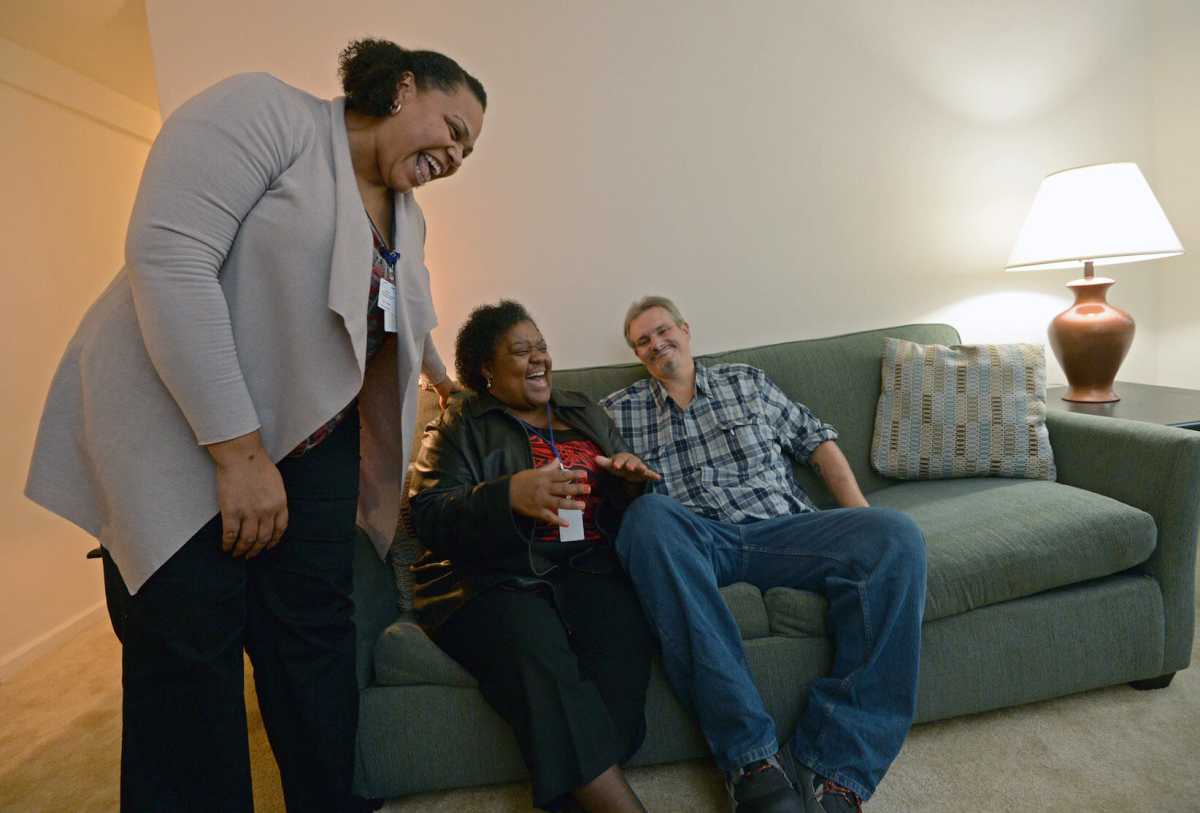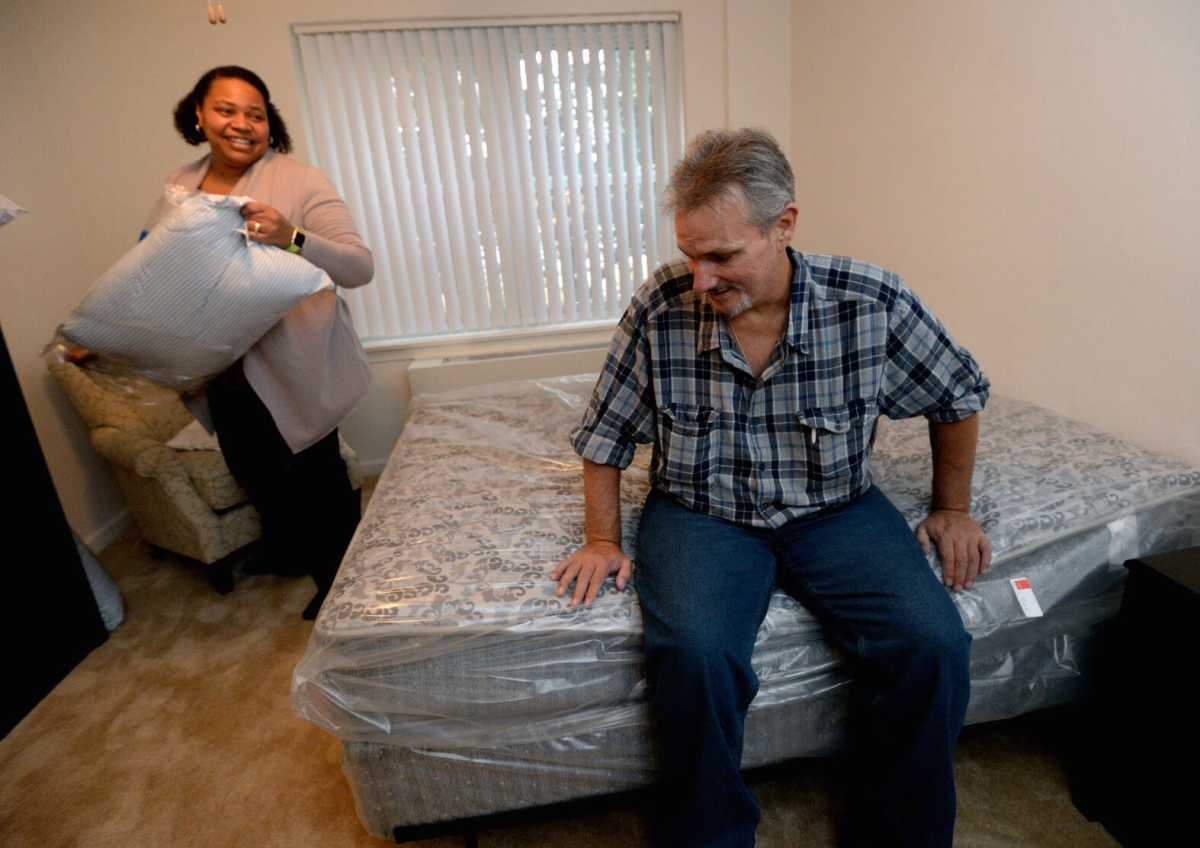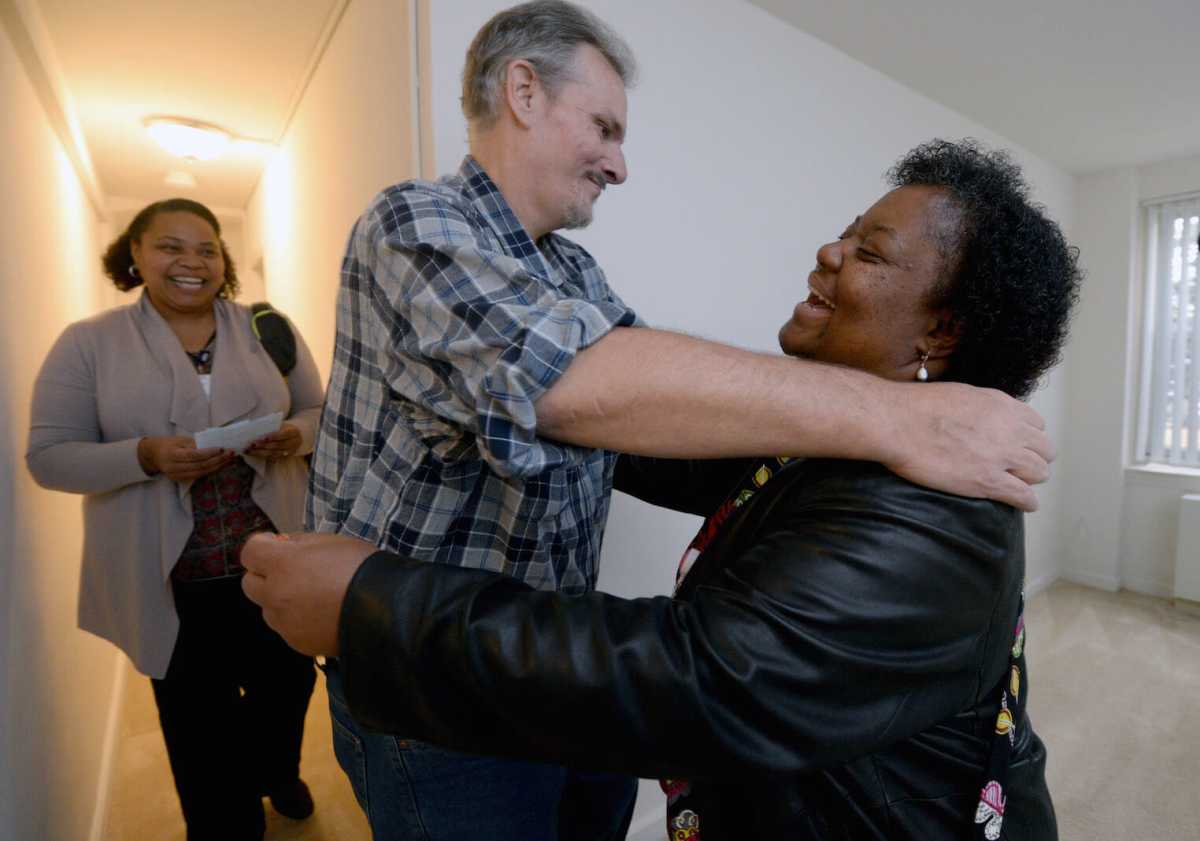Peter Bowser and Cheryl Pew have just moved into their new house. They are the first couple to secure a residence through Camden Coalition of Healthcare Providers’ new Housing First initiative, which arranges supportive housing for the homeless. Bowser says he knew God would carry him through to a day like this one, while Pew is animated with excitement. Bowser was amongst a handful of clients in Housing First program, which will eventually serve 50 formerly homeless citizens in South Jersey. When caseworkers noted that his fiancée, Pew, lived in a shelter as well, it only made sense to find an abode that was fit for two. The last time Bowser had a steady address, he was in Delaware, married and working on in the detailing department of a car dealership.
Related link: North Philly Peace Park tries to start over “My ex-wife and me got divorced, and she put me out,” he says. “So my family told me to come back to New Jersey.”
This was about two years ago. He was saddened to discover that family in Atlantic City didn’t have a place him, he explains, so went to Camden, where he thought he could find opportunity. His asthma had been giving him more trouble over the years, making it tough to keep a regular gig. In shelters, his condition grew worse. “From January of this year to August of this year, I’ve been in and out of the hospital at least 20 times,” Bowser recalls.
Related link: Philly prison staff, inmates jubilant over Pope visit
But Bowser is one of the few at Camden Coalition of Healthcare Providers (CCHP) to be linked up with housing so far, where, according to policy and advocacy program assistant Sam Katz, homeless residents make up more than a third of their patients. “Essentially what [our frontline staff] has told us over many years is that it’s impossible to do their duties and improve health outcomes when so many residents are unstably housed or chronically homeless,” says Katz. Related link:Hip-hop yoga with a beat hits North Philly
A statewide survey on homelessness this year reported 611 homeless people in Camden County; 49 percent of them were disabled. But there is some hope. CCHP is researching to see if they could expand financing for Housing First with a model that has lately gotten lots of political praise: Pay for Success. Also called social impact bonds, the Pay for Success (PFS) method was first developed in the U.K. five years ago, and landed stateside in 2012. While just eight programs have been implemented domestically so far, it’s attracting attention for its model— a private-public partnership that pulls private sector investment into social services. The twist is that the terms hinge on performance results: investors see returns based on benchmarks achieved, like say, a certain reduction in special education enrollment in elementary schools. Through outcome-based repayment, should the program fail, the government loses no money. It’s a scheme where philanthropic investors spare cities the burden of putting up the initial funds, and bear the risk of smaller returns if projects fail.
Considerable savings were predicted by a feasibility study the city of Philadelphia released this summer evaluating a hypothetical anti-recidivism programs using PFS: for every dollar spent, the city would gain $1.70 cents in avoided costs, the authors of the study estimated. “It’s not a panacea. There are serious concerns. But in this conversation, I will be a cheerleader,” said Ian Galloway, a Federal Reserve Bank of San Francisco researcher who spoke at a conference dedicated to PFS last month thrown by Philly’s Federal Reserve Bank. “What really animates me about Pay For Success is it creates a tool to invest in human capital.” Staff for Mayor-elect Jim Kenney said he is aware of and interested in the program.
“Jim thinks innovative financing programs like Pay for Success are interesting ways to fund programs that could make significant positive impacts on the city,” said Kenney’s policy director Jim Engler. “Jim is monitoring the success of similar programs at the state level and also in other cities and will use the lessons learned there to inform decisions made by his administration.” Kenney’s word could soon be put to the test: aside from CCHP, there are at least two other Philly projects with plans brewing centered around PFS financing, says Noelle Baldini, a community engagement associate at the Federal Reserve Bank of Philadelphia: one would target recidivism, and another offer supportive housing for people with disabilities. Meanwhile, CCHP is devising a feasibility plan of their own around PFS. In this case, the funds would cover wraparound services for the newly housed, and the outcomes would be more homeless patients off the streets. Meanwhile, Mayor Michael Nutter, though soon to depart office, said at the conference that he hopes Philadelphia could become the “capital for Pay for Success” at the conference — citing the challenges in funding the social programs cities like Philly so badly need. “I have to pass on the baton, but the business of government has to continue,” Nutter said. “The reality is there’s only so much we can do on our own,” he said.






























